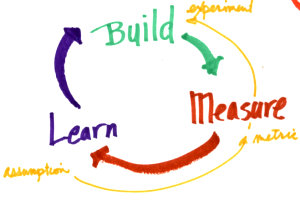 Today we held the third Lean Startup Lunch in Silicon Valley at Ephesus in Mountain View. The discussion focused quite a bit on gaming and the challenges of launching a good game. We also discussed how some technical challenges for entrepreneurs have become easier in recent years (versus some that seem to never go away) and how that changes the fundraising game.
Today we held the third Lean Startup Lunch in Silicon Valley at Ephesus in Mountain View. The discussion focused quite a bit on gaming and the challenges of launching a good game. We also discussed how some technical challenges for entrepreneurs have become easier in recent years (versus some that seem to never go away) and how that changes the fundraising game.
One of the attendees was Shirley Lin, the founder of gaming company YoXi123 who shared her insights on the pros and cons of launching on FaceBook versus launching elsewhere, like the iPhone. She mentioned that FaceBook is a bit of its own ecosystem, and its important to know that going in – meaning be prepared to experiment and learn what works. One of the benefits of FaceBook is the ability to experiment with small amounts of targeted advertising to figure out the profile of your sweetspot user, because it’s often not exactly who you think it will be. She offered an example of an entrepreneur who developed an app targted at Foodies, and found that the best predictor of interest in the app was if someone had played a particular Zynga game. And that would have been almost impossible to see coming.
Another discussion was on the ways services like S3 and EC2, and others like it, along with languages that are relatively easier to learn, like Ruby, and services like Heroku have in some ways democratized innovation, compared to older days that were not that long ago. Or add the fact that one or two people can develop and launch an iPhone (or Android) app and begin collecting payment immediately. In many ways this has changed the traditional VC game, and the numbers bear this out.
On the other hand, the discussion raised points on how some things haven’t changed. For venture funding, while it no longer takes (much) money to launch a software company, it still takes a lot of money to scale. The opinion at lunch was this potentially reduces risk for VC’s as they can sit and watch and wait for traction. (Some VC’s I’ve spoken to say it’s not quite that simple – another discussion for another day.)
On the technical side, arguments on which coding language to use will never go away. I shared a story from my very first startup back in the dotcom days of initially building stuff in Perl, and refactoring into C++. There were immediate laughs from two cofounders who had the same argument just yesterday, using Python instead of Perl.
Unfortunately I had to leave early, and the discussion was still going strong. If you were there, or at the Lunch in San Francisco, feel free to share more in the comments.


Thank you, Mark. I was not able to make this lunch and it’s great to have a re-cap.